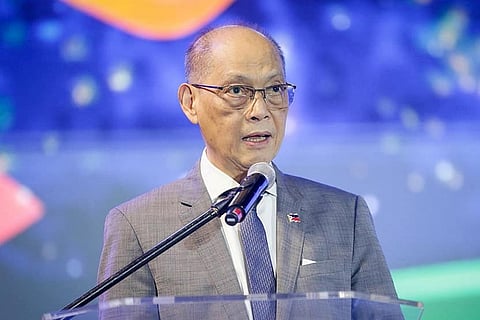
- NEWS
- the EDIT
- COMMENTARY
- BUSINESS
- LIFE
- SHOW
- ACTION
- GLOBAL GOALS
- SNAPS
- DYARYO TIRADA
- MORE

Finance Secretary Benjamin Diokno said that the proposals on suspending the collection of excise taxes on petroleum products would only benefit the rich and would cause "huge damage" to the economy.
Diokno warned against the politicians' call to oil firms to lower oil prices amid skyrocketing fuel cost, where House Speaker Martin Romualdez asked President Ferdinand Marcos Jr. to suspend the collecting of the fuel excise tax.
The House of Representatives met with oil industry players to discuss the country's energy crisis and look into possible remedies, such as suspending excise taxes for three months.
In a Viber message to reporters, Diokno said that the 10 percent of households with the highest incomes, who consume close to 50 percent of all fuel, are the primary beneficiaries of the suspension of fuel taxes.
On the other hand, he said the lower half of homes only use approximately 10 percent of the gasoline.
Diokno added that suspending the excise tax will not help combat inflation in the long run.
"Any of the proposals will adversely affect our economic and fiscal recovery, our international credit ratings, and our overall debt management strategy," Diokno said.
In a separate television interview, Diokno said the government would lose billions in revenue if the government suspended the VAT and excise tax on fuel.
"First of all, when you continue with that, what will be lost in the government is P72.6 billion (in revenue) for the fourth quarter only. That's the last quarter of 2023," Diokno said, adding that the government would also P31.2 billion in VAT for the same quarter.
"In total, for the whole year of 2024, it will reach P280.5 billion that will be lost from the government," he added.
Diokno said the foregone revenues will lead to a higher budget deficit – from 5.1 percent to 6.2 percent of GDP, and higher debt-to-GDP ratio in 2024 from a projected 60.2 percent to 61.3 percent.
The solution, Diokno said, is to give targeted subsidies to those who will be most negatively affected by increased fuel prices, such as jeepney drivers, farmers, and fishermen.
Additionally, Diokno said that eliminating fuel taxes requires time-consuming legislative action.
"Once the elevated oil prices subside, it may not be easy to restore taxes on oil product. It is politically unpopular. That's the political economy of tax legislation," Diokno said.
"This has serious implications on fiscal sustainability," he added.
